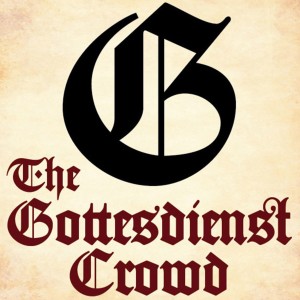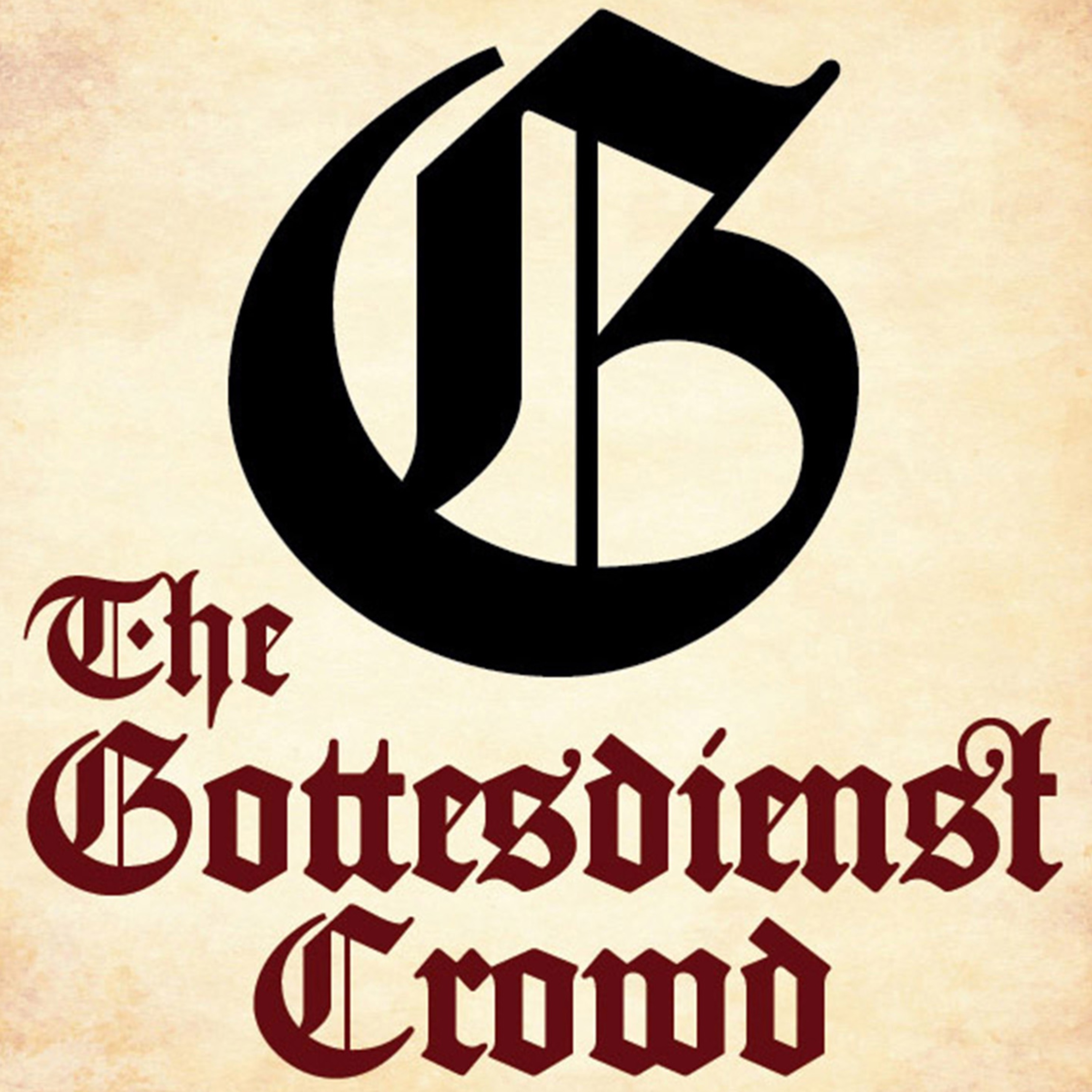Episodes

Monday Jul 11, 2022
TGC 201 — Thinking Out Loud (Trinity 5)
Monday Jul 11, 2022
Monday Jul 11, 2022
Two pastors thinking out loud about the upcoming Gospel reading. This episode is devoted to the Gospel reading for The Fifth Sunday after Trinity, Luke 5:1–11.
Read the rest of this entry »![[Gottesblog] OK, Boomer, Part Deux — Larry Beane](https://pbcdn1.podbean.com/imglogo/image-logo/332069/G_logo_1500_f5mj7a_300x300.jpg)
Sunday Jul 10, 2022
[Gottesblog] OK, Boomer, Part Deux — Larry Beane
Sunday Jul 10, 2022
Sunday Jul 10, 2022
Read the blog post at Gottesdienst.org.

Wednesday Jul 06, 2022
TGC 200 — The Fathers & the Solas
Wednesday Jul 06, 2022
Wednesday Jul 06, 2022
Whether from the East or Rome, Lutherans are charged with innovation despite the Lutheran confessors protests. In this episode, Will Weedon takes us through some of the church fathers to note how they uphold what our Lutheran forebears have passed on to us, especially noteworthy is the fathers’ insistence that whatever they have written that is not in line with the Holy Scriptures should be ignored and only that which can be backed up by the Scriptures should endure.
Here is the link to the whole list of quotations from the Fathers that Weedon compiled.
Read the rest of this entry »
Monday Jul 04, 2022
TGC 199 — Thinking Out Loud (Trinity 4)
Monday Jul 04, 2022
Monday Jul 04, 2022
Two pastors thinking out loud about the upcoming Gospel reading. This episode is devoted to the Gospel reading for The Fourth Sunday after Trinity, Luke 6:36–42.
Read the rest of this entry »
Wednesday Jun 29, 2022
TGC 198 — Redeeming Our Institutions
Wednesday Jun 29, 2022
Wednesday Jun 29, 2022
We are living in a time with unprecedented, at least within living memory, pressures placed upon the church. We watch as our churches shrink and our schools close. Just in the past four years, three of our Concordia Universities have shut their doors, while others are in turmoil from the culture outside and the culture that has crept within. Can these institutions be redeemed and take their place once again as a training ground for liturgical and confessional Lutherans who will out their faith in home, society, and the church?
Read the rest of this entry »
Monday Jun 27, 2022
TGC 197 — Thinking Out Loud (Trinity 3)
Monday Jun 27, 2022
Monday Jun 27, 2022
Two pastors thinking out loud about the upcoming Gospel reading. This episode is devoted to the Gospel reading for The Third Sunday after Trinity, Luke 15:1–10.
Read the rest of this entry »![[From the Archives] TGC 128 — On Dying Well](https://pbcdn1.podbean.com/imglogo/image-logo/332069/G_logo_1500_f5mj7a_300x300.jpg)
Wednesday Jun 22, 2022
[From the Archives] TGC 128 — On Dying Well
Wednesday Jun 22, 2022
Wednesday Jun 22, 2022
From the moment we are born we are dying. We are brought into newness of life in Christ and the Church through the death of Holy Baptism. Much of our Lord’s teaching and the teaching of Scripture is about learning to die well, which leads to a life lived well, now and for all eternity. In this episode, Travis Berg (pastor of St. Paul Lutheran Church, Latimer, IA) walks us through the art of dying well and thus living well. We will confront the charge that Christians are so heavenly minded that they are of no earthly good, and much more.
Read the rest of this entry »![[From the Archives] TGC 022 — Rubrics for the Laity](https://pbcdn1.podbean.com/imglogo/image-logo/332069/G_logo_1500_f5mj7a_300x300.jpg)
Wednesday Jun 15, 2022
[From the Archives] TGC 022 — Rubrics for the Laity
Wednesday Jun 15, 2022
Wednesday Jun 15, 2022
In this Gottescast, The Gottesdienst Crowd discusses rubrics and ceremonies for the Laity. Mark Braden (Gottesdienst Editor, the author of the recurring column "Taking Pains," and pastor of Zion Lutheran, Detroit, MI) joins us for the discussion.
The bibliography mentioned may be found here: https://s3.amazonaws.com/churchplantmedia-cms/zion_evangelical_lutheran_church/a-select-bibliography-on-the-holy-liturgy.pdf
You can subscribe to the Journal here: https://www.gottesdienst.org/subscribe/
You can read the Gottesblog here: https://www.gottesdienst.org/gottesblog/
You can support Gottesdienst here: https://www.gottesdienst.org/make-a-donation/
As always, we, at The Gottesdienst Crowd, would be honored if you would Subscribe, Rate, and Review. Thanks for listening and thanks for your support.
![[From the Archives] TGC 041 — Advice for New Pastors](https://pbcdn1.podbean.com/imglogo/image-logo/332069/G_logo_1500_f5mj7a_300x300.jpg)
Wednesday Jun 08, 2022
[From the Archives] TGC 041 — Advice for New Pastors
Wednesday Jun 08, 2022
Wednesday Jun 08, 2022
In this Gottescast, The Gottesdienst Crowd jumps on the bandwagon of advice givers for newly-minted pastors, though its good for those not so new too. David Petersen (pastor of Redeemer Lutheran Church, Fort Wayne, IN, and author of the recurring column "Commentary on the War" in the Gottesdienst Journal) joins us for the discussion.
Here's a link for the Gerberding book: https://archive.org/details/lutheranpastor00gerb/page/n4
Here's a link to a podcast on Gerberding's book: http://wordfitlyspoken.org/?s=Gerberding
You can subscribe to the Journal here: https://www.gottesdienst.org/subscribe/
You can read the Gottesblog here: https://www.gottesdienst.org/gottesblog/
You can support Gottesdienst here: https://www.gottesdienst.org/make-a-donation/
As always, we, at The Gottesdienst Crowd, would be honored if you would Subscribe, Rate, and Review. Thanks for listening and thanks for your support.
![[From the Archives] TGC 043 — Trinity Sunday](https://pbcdn1.podbean.com/imglogo/image-logo/332069/G_logo_1500_f5mj7a_300x300.jpg)
Monday Jun 06, 2022
[From the Archives] TGC 043 — Trinity Sunday
Monday Jun 06, 2022
Monday Jun 06, 2022
In this Gottescast, The Gottesdienst Crowd discusses Trinity Sunday. Sean Daenzer (pastor of Trinity Lutheran Church, Great Bend, ND, and Peace Lutheran Church, Barney, ND) joins us for the discussion.
You can subscribe to the Journal here: https://www.gottesdienst.org/subscribe/
You can read the Gottesblog here: https://www.gottesdienst.org/gottesblog/
You can support Gottesdienst here: https://www.gottesdienst.org/make-a-donation/
As always, we, at The Gottesdienst Crowd, would be honored if you would Subscribe, Rate, and Review. Thanks for listening and thanks for your support.

